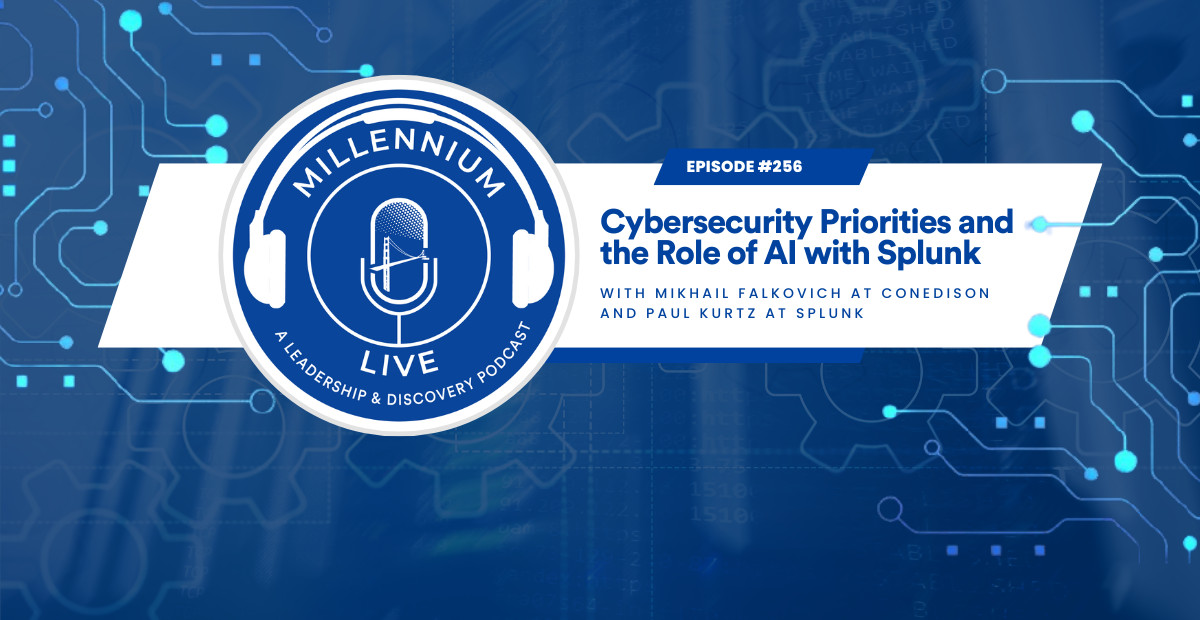This week, Splunk is taking over the #MillenniumLive podcast! On this episode, two distinguished guests in the cybersecurity field Mikhail Falkovich, Chief Information Security Officer at ConEdison, and Paul Kurtz, Chief Cybersecurity Advisor and Field CTO at Splunk. Together, they bring decades of expertise and insights into the ever-evolving landscape of digital security.
Mikhail kicks off the discussion by highlighting the critical importance of safeguarding vital infrastructure, such as electric, gas, and steam services—a mission he’s been dedicated to at ConEd. Paul, drawing from his extensive cybersecurity background, underscores the shifting priorities within the industry, emphasizing the need for internal capabilities, collective defense measures, and compliance with evolving regulations.
Mikhail and Paul further explore how organizations like ConEdison leverage tools like Splunk internally to bolster their cybersecurity posture. From data processing to AI and machine learning capabilities, they shed light on the transformative power of technology in fortifying defenses and streamlining operations.
A key topic of conversation revolves around the adoption of AI in cybersecurity. Mikhail and Paul discuss its role in threat detection, the importance of well-defined business use cases, and the challenges posed by adversarial AI tactics like impersonation.
Whether you’re a seasoned cybersecurity professional, enthusiast, or simply curious about the ever-evolving realm of digital security, this episode unravels the intricacies of cybersecurity priorities, new technology and resiliency.
Listen on Spotify, Apple, Amazon Music
About Splunk
Splunk was founded to pursue a disruptive new vision: make machine data accessible, usable and valuable to everyone. Machine data is one of the fastest growing and most pervasive segments of “big data”—generated by websites, applications, servers, networks, mobile devices and all the sensors and RFID assets that produce data every second of every day.
To learn more visit: https://www.splunk.com/
